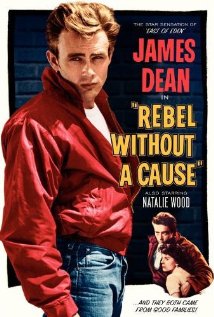Sixty years ago this week James Dean finished shooting his final scenes in George Stevens’ film Giant at the Warner Brothers Studio in Burbank. Released from contract the young Hollywood idol was free once more to ride his motorbike – and go racing with a newly acquired Porsche 550 Spyder.
The Porsche was street legal, but in reality a light-weight competition model built for two seat sports races, in which Dean had already had some success. But this car was barely run-in, his mechanic suggesting they drove it to next weekend’s race meeting up the coast in Salinas to ease the gearbox.
On Friday September 30th, 1955 they set out from Los Angeles and picked up a speeding ticket from a friendly cop in Bakersfield: “Take it easy,” the cop said. “There’s plenty of time for all of us to get where we’re all going.”
An hour and a half later the Porsche collided at 80mph with a black Plymouth saloon at the country intersection of Highways 466 and 41. The Plymouth drove out in front of Dean, its young driver failing to see the fast low silver race car approaching – Dean not picking up the turning Plymouth against the setting sun. The racing Porsche crumpled like a paper toy.
The 24 year old actor died at the scene, news filtering back to LA as the crew and cast of Giant were watching evening rushes.
Even that adult world paused for a moment. For the young, if only half-aware of him (his three films hadn’t yet been released in the UK), that death came both as a generational shock and powerful incentive.
“The death of Mr James Dean”
“Did you hear?” we said to one another. “Even lunchtime radio news reported it.” In those days the staid old BBC never broadcast ‘celebrity gossip’. So this had to be something different – as sure enough it was. The death of ‘Mr James Dean’ (as the BBC called him) for a moment stopped the clock.
Almost overnight, he became the governing image of a restless, rootless generation, the subsequent release of his films only enhancing his stature as rebel king. Like Che Guevara twelve years later, his face was suddenly pinned to all our walls.
On cue the next twelve months began to change one’s perception of the world. Two months after Dean’s death a Mrs Rosa Parks in Montgomery, Alabama, refused to give up her seat on the bus to a white man and sparked off the first public boycott in the fight for racial equality; in London, John Osborne’s Jimmy Porter arrived on the London Stage in Look Back In Anger
The following year, on the other side of the coin, Britain and France embarked on their last disastrous imperial adventure along the Suez Canal, while in Hungary the barricades went up on the streets of Budapest to challenge, however hopelessly, the totalitarian dominance of Rakosi’s secret police and the Russian tanks. The years of protest and direct action had begun and young people all over the world began to find articulate expression for their rebellion.
The Rock ‘n’ Roll years
Ten years after the end of the Second World War we had begun to identify other images and voices. Our generation had been dominated by leaden paternalism, Eisenhower in the USA, Attlee, Churchill, Eden in the UK. Obedience, for good or bad, was still a habit, and Korea had reinforced wartime myths.
The cold war had moved beyond the confines of Berlin and occupied Europe, across the Atlantic where Americans submitted with surprising lack of protest to the cruel inquisition of McCarthy’s anti-Communist witch-hunts.
Our world was changing; the other world had not. For us a rare talent and a young and violent death made James Dean a mythical and long-lived liberal presence in our lives.
Maybe we should ask the Kino (or the Rye Film Club) to show us the three Dean films and rediscover what all the fuss was about: Elia Kazan’s East of Eden, Nick Ray’s Rebel Without A Cause and Giant – which won an Oscar for George Stevens, a posthumous Oscar nomination for Dean, a nomination for Rock Hudson, and adoring audiences for Elizabeth Taylor.



